By Anthony Salvanto, Kabir Khanna, Fred Backus, Jennifer De Pinto
Jill Schlesinger on new jobs report
Views of the nation's economy have ticked back up — though they remain a long way from good. And amid mixed economic messages and reports, there's little consensus among Americans on which way the economy is headed from here.
In another sign of uncertainty as debt ceiling talks continue, Americans' views on the debt limit are tied to how likely they think an economic downturn is if it isn't raised.
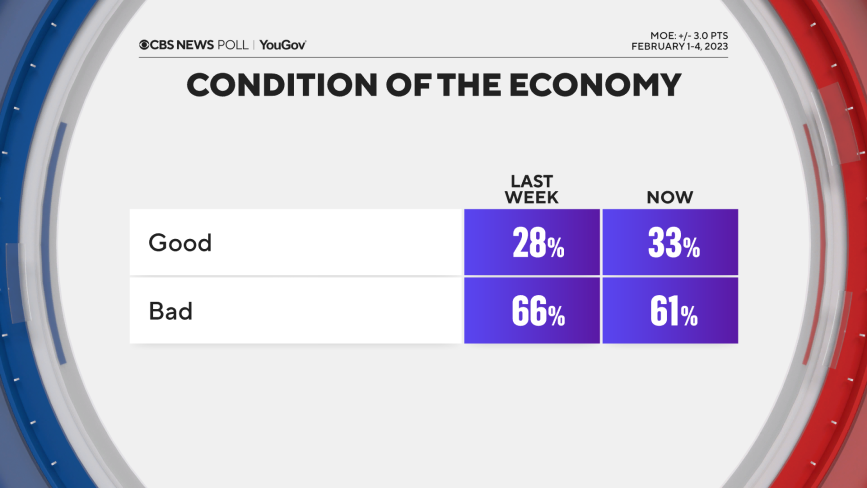
The uptick in economic views puts them back a bit above where they started 2023, varying a bit perhaps in another sign of collective uncertainty. Alongside that, President Biden's overall job approval now heading into his State of the Union address Tuesday is at 45%. It's been relatively stable and is a point higher than at the start of this year among Americans overall. His ratings for handling the economy are still far from positive, but a little higher than they were last summer.
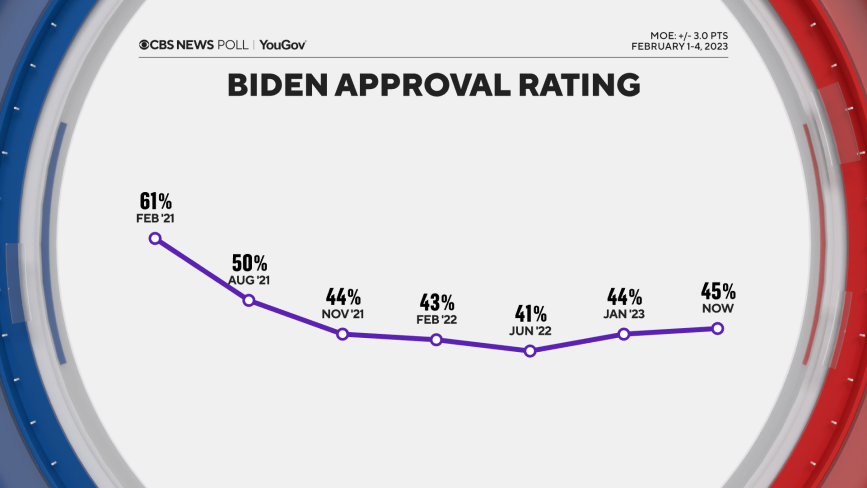
Mr. Biden's approval ratings for handling of COVID are strong, but other specific issues remain underwater. He gets relatively better marks on infrastructure and the situation with Russia and Ukraine than for inflation. His marks are comparably lower on handling issues with China.
The debt ceiling
Views on raising the debt ceiling start off negative in principle, but if people are faced with the prospect of a U.S. default, a big majority would end up saying, "raise it."
Here's how that unfolds:
We first asked if the U.S. borrowing limit should be raised to pay current debts, and most say no, with Republicans and conservatives especially opposed. That suggests in part that the general idea of added borrowing is not popular.
But then we asked those opposed to raising the debt ceiling: what if that means the U.S. defaults?
In that case, the majority view on the debt ceiling moves in favor of raising it.
Republicans, Democrats and independents all shift substantially toward raising it when presented with the prospect of default. And shifts are most pronounced among those more worried about an economic downturn if the limit isn't raised.
So, it turns out defaulting is even more unpopular than borrowing.
And it's an important lesson both for politics — as we watch political leaders talk about the matter in the coming weeks — and for how we gauge public opinion on a complicated issue and its potential implications.
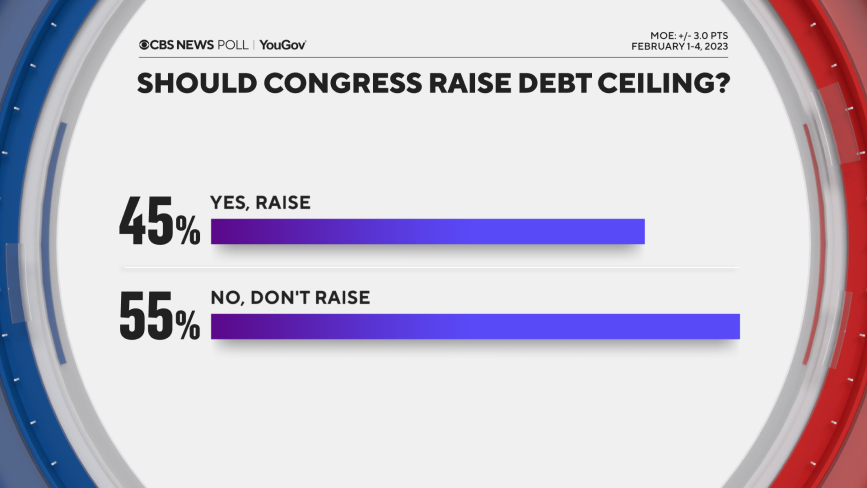
Overall combined views on raising debt ceiling, incorporating mention of possible default:
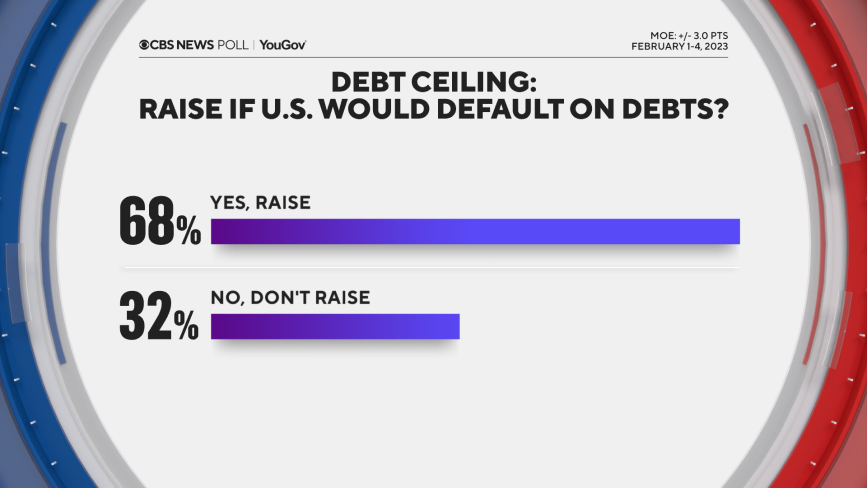
So, what's next?
In all, most Americans do want both Mr. Biden and Republicans in Congress to compromise some of their positions in order to raise the ceiling.
Within that majority, there are some party differences, though. Democrats want Mr. Biden to compromise. Half of Republicans, and just over a third of people overall, don't think their side should, even if the U.S. defaults.
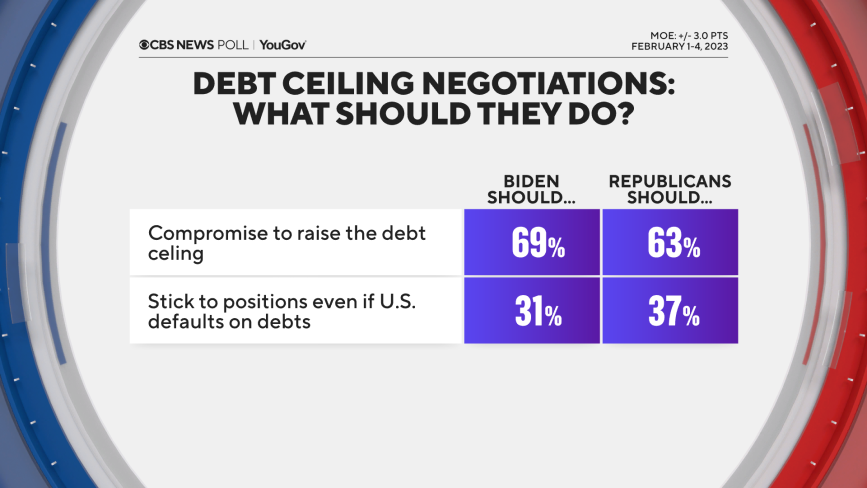
And what's next for the economy?
More than seven in 10 think a downturn is at least somewhat likely if the debt ceiling isn't raised. (Most also think, though, that not raising it will force the government to balance its budget.)
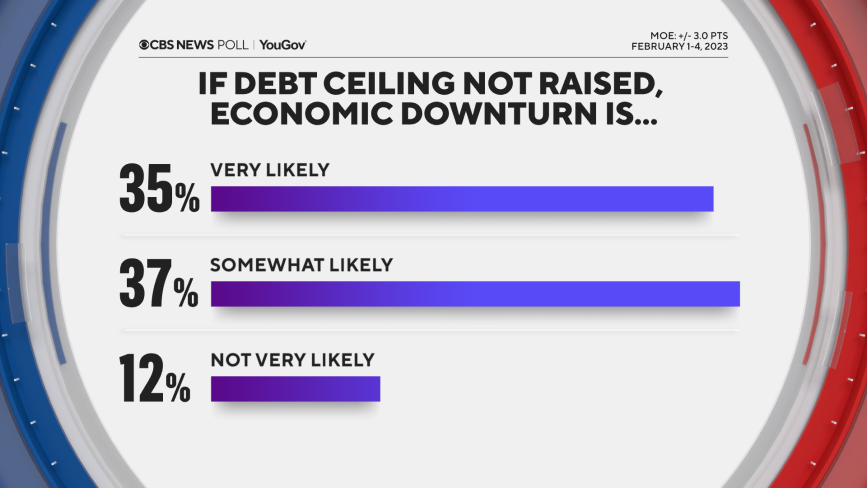
If a lot of economists have differing views on the nation's economic prospects, it may be no surprise to find mixed views among the general public either. There are a few who see growth or stability, but a majority still are pessimistic, expecting either a slowdown or outright recession.
Then again, these public views may have as much to do with politics as empirical forecasts. It's Republicans who most heavily say recession, and Democrats with above-average tendency to think growth.
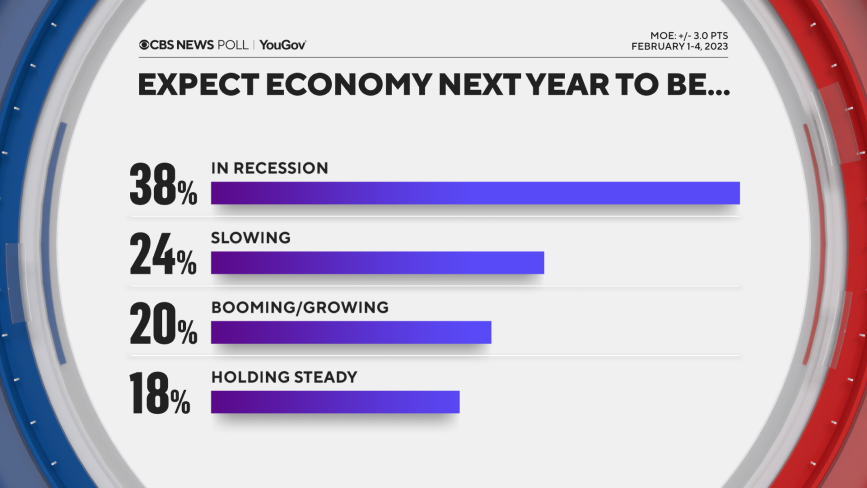
Lowering inflation remains the top priority of a long list of potential problems the nation has to tackle. But in a divided government, who in D.C. is on the hook politically for what happens?
Everyone we asked about, at least to some extent, including the Federal Reserve. But the president — as is the case with so many things — bears relatively more responsibility than others in the public mind.
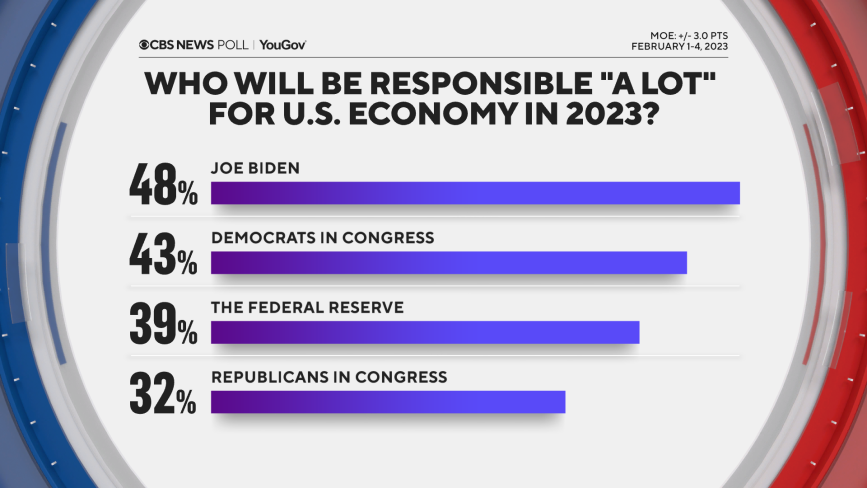
This CBS News/YouGov survey was conducted with a nationally representative sample of 2,030 U.S. adult residents interviewed between February 1-4, 2023. The sample was weighted according to gender, age, race, and education based on the U.S. Census American Community Survey and Current Population Survey, as well as the 2020 presidential vote. The margin of error is ±3.0 points.
Toplines
- In:
- Economy
- Opinion Poll
- Joe Biden

Anthony Salvanto, Ph.D., is CBS News' director of elections and surveys. He oversees all polling across the nation, states and congressional races, and heads the CBS News Decision Desk that estimates outcomes on election nights. He is the author of "Where Did You Get This Number: A Pollster's Guide to Making Sense of the World," from Simon & Schuster (a division of ViacomCBS), and appears regularly across all CBS News platforms. His scholarly research and writings cover topics on polling methodology, voting behavior, and sampling techniques.
Thanks for reading CBS NEWS.
Create your free account or log in
for more features.


